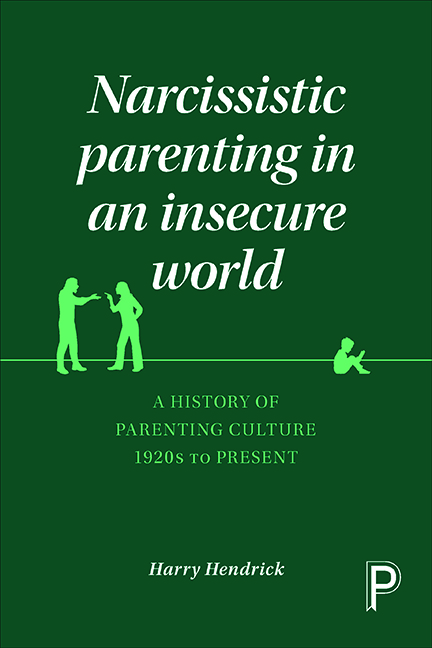Book contents
- Frontmatter
- Dedication
- Contents
- About the author
- Acknowledgements
- Introduction
- Part One The origins of social democracy’s family ideal: 1920s–1940s
- Part Two Characteristics of the ‘Golden Age’: 1940s–early 1970s
- Part Three Influences and examples from the USA
- Part Four Parental narcissism in neoliberal times: 1970s to the present
- Part Five Therapeutic reflections
- Index
one - The re-imagining of adult–child relations between the wars
Published online by Cambridge University Press: 05 April 2022
- Frontmatter
- Dedication
- Contents
- About the author
- Acknowledgements
- Introduction
- Part One The origins of social democracy’s family ideal: 1920s–1940s
- Part Two Characteristics of the ‘Golden Age’: 1940s–early 1970s
- Part Three Influences and examples from the USA
- Part Four Parental narcissism in neoliberal times: 1970s to the present
- Part Five Therapeutic reflections
- Index
Summary
‘The world has changed, and human nature is in a process of transition.’ (Harold Nicolson)
The paradox of the inter-war years: ‘we danced all night’ through what was a ‘morbid age’
Uncertain and afraid
As the clever hopes expire
Of a low dishonest decade
(W. H. Auden ‘September 1, 1939’)
A few years before Auden wrote his famous epitaph for the 1930s, Nigel Nicolson, the writer and politician, compared the mental geography of a couple marrying in the late Victorian period with that of the inter-war years. In the former, it was safe to assume that:
whatever political or social changes might occur, the main structure of society…would remain the same…the continuance of a certain social and religious standard; the relations between the two sexes would remain comparatively uniform…such expressions as ‘patriotism’, ‘imperialism’, ‘manliness’, or ‘loyalty’ would retain their then existing values…They knew the formula which applied or contributed to these, for them, inevitable stages of development…They did not foresee that all social and religious sanctions would lose their former validity; that women would acquire greater independence of domestication…that the old affective terms would be exposed to questioning; that the whole stand of pleasure would change dynamically; that relativity would destroy all our certainties; and the unconscious blur all our thoughts… or that…the parent would be faced with a complexity of disintegration in which the old formulas would appear as ineffective as willow wands in a typhoon.
According to the eminent psychiatrist W. H. R. Rivers, the war had been ‘a vast crucible in which all our preconceived views concerning human nature have been tested’. Under a ‘Freudish’ mantle, referring to ‘all the terminology which the public, rightly or wrongly, identified as being psychoanalytic’, it was thought that maybe personal and political violence, which seemed to be on the increase throughout Europe, was reflecting a universal human condition: perhaps the birth of an ‘aggressive personality’. This and other anxieties were fed by ‘the General Strike and the airship, revolution and radium, Marxism, Modern Art, motor cars, movies, Marconi and Mussolini’, all of which made it difficult to make sense of ‘human nature’.
- Type
- Chapter
- Information
- Narcissistic Parenting in an Insecure WorldA History of Parenting Culture 1920s to Present, pp. 33 - 62Publisher: Bristol University PressPrint publication year: 2016



